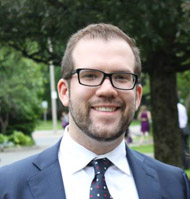Governance at the University of Toronto
Governance of the University of Toronto is collaborative and engages students, staff, faculty members, divisions, colleges, residences and draws members from all three constituent campuses—Scarborough, Mississauga and St. George.
There are many opportunities for students to participate in university governance in formal and informal ways. In the broader university, there are close to 2,000 elected or appointed positions for students on more than 350 councils, boards and committees. Students also participate in university decision making through a vast range of informal consultation and feedback mechanisms.
Governing Council is the senior body that oversees the academic, business and student affairs of the University of Toronto, including:
- Providing guidance on the University’s long term strategic direction;
- Advising on and approving financial policies, and approving the annual operating budget and audited financial statements;
- Oversight of human resources policies;
- Reviewing and approving institutional master plans and major capital projects, and monitoring project implementation;
- Academic quality; and
- Student experience.
Law students have a strong tradition of making significant contributions to Governing Council and its committees. Since 2005, the following students have been elected to serve as University Governors:
- Riaz Sayani-Mulji (class of 2016)
- Cary Ferguson (class of 2013)
- Adam Heller (class of 2011)
- Alex Kenjeev (class of 2011)
- Navine Aggarwal (class of 2007)
- Ran Goel (class of 2007)
Governance at the Faculty of Law
Student participation is very important to decision-making at the Faculty of Law. Law students contribute on a broad range of issues that impacts almost every aspect of the law school, including curriculum, courses, clinics, admissions, financial aid, diversity and accessibility, etc. Similar to the structure of the University’s governance, law students contribute to decision making at the faculty through formal and informal mechanisms.
The Faculty of Law’s formal governance takes place through its Faculty Council and Committees, and the Dean’s Advisory Committees. In addition to all faculty members and some staff, elected student members of the Student’s Law Society and the Graduate Student Law Society vote on issues that come before the Committees and Faculty Council. Law student representatives comprise one-third of voting members of Faculty Council.
Student membership on Faculty Council Committees and Dean’s Advisory Committees is as follows:
- Standing Curriculum Committee: 3 JD, 1 Grad
- Financial Aid Committee: 3 JD
- Graduate Education Committee: 2 Grad
- Library and Technology Committee: 2 JD, 1 Grad
- Student Affairs Committee: 1 JD, and 2 Grad
- Gender, Accessibility and Diversity Committee: 3 JD, 2 Grad
- Short-term Curriculum Committee: 2 JD
- Appeal Committee: 2 JD
- Graduate Appeal Committee: 1 Grad
- International Advisory Committee: 3 JD, 1 Grad
- Clinical and Experiential Education Committee: 2 JD
- Mooting and Advocacy Committee: 2 JD
- Environmental Sustainability Committee: 3 JD, 1 Grad
- Admissions Committee: 2 JD
- Mental Health and Wellness Committee: 3 JD, 1 Grad
- Truth and Reconciliation Committee: 2 JD
Law students also participate in numerous informal consultations and feedback mechanisms including standing committees such as the Health and Wellness Student Advisory Committee and Career Development Student Advisory Committee, and other ad hoc consultations hosted by the law school administration throughout the year.


